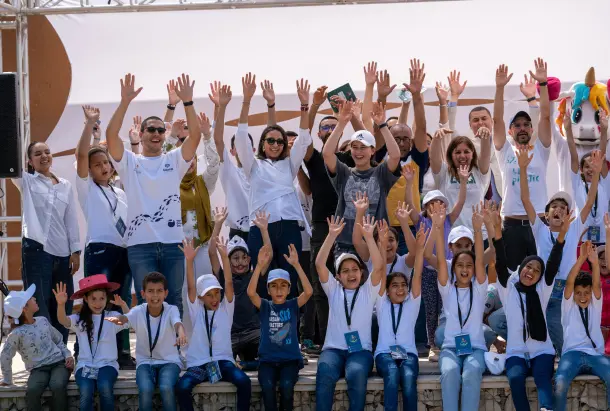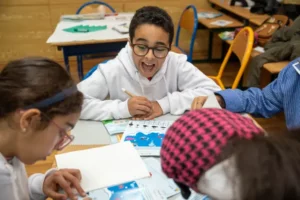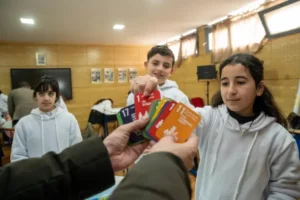We Communicate For Happy Children
 Educating to act: Moroccan youth in action for a sustainable future
Educating to act: Moroccan youth in action for a sustainable future 
1 July 2025
Since 2006, Morocco has made significant strides in advancing Education for Sustainable Development (ESD), led by the Mohammed VI Foundation for Environment Protection and the Foundation for Environmental Education (FEE), key UNESCO partners. Through the Eco-Schools programme, over three million students in more than 5,000 schools, including preschools, engage in practical environmental actions. Schools form committees of students, teachers, parents, and local partners to identify environmental challenges and implement concrete solutions. More than 600 schools have been awarded the Eco-Schools label, reflecting sustained commitment to environmental excellence and creating a ripple effect of positive habits within households and communities.

(Mohammed VI Foundation for Environment Protection)
Complementing Eco-Schools, the Young Reporters for the Environment programme mobilizes thousands of youth to raise awareness on environmental issues through media, contributing to a culture of ecological responsibility from an early age. To date, over 45,000 young people have participated, supported by 15,000 trained educators, earning hundreds of national and international awards for their efforts.
A central pillar of Morocco’s success is the large-scale training of educators. Tens of thousands of teachers have received resources and tools to integrate sustainability across all subjects. A national network of regional and provincial coordinators ensures effective implementation at the local level, maintaining strong links between grassroots initiatives and national educational strategies.

(Mohammed VI Foundation for Environment Protection)
Over the past two decades, sustainable development has been systematically integrated into Morocco’s education system, supported by the Ministry of National Education and UNESCO. ESD is now embedded in national curricula, including a dedicated subject on 21st-century skills and global citizenship, reinforcing its role as a foundation of educational quality and directly contributing to Sustainable Development Goal (SDG) 4.7.
Within the global ESD for 2030 framework, UNESCO continues to provide technical guidance, capacity building, and knowledge sharing to support national efforts. Morocco’s experience demonstrates how structured ESD initiatives can drive transformative change, empowering young generations to actively contribute to sustainable development and the broader SDG agenda.
You may read the full story by UNESCO here.
